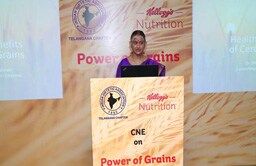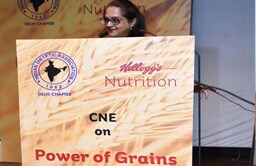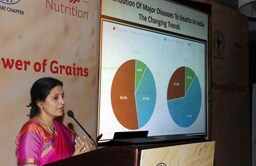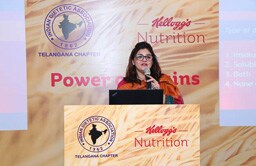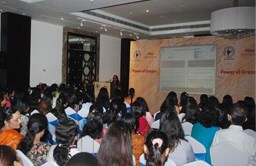Continuing Nutrition Education
Continuing Nutrition Education
Kellogg continuously provides healthcare professionals with credible science and research relating to nutrition and healthy lifestyle issues. Kellogg hosts Continuing Nutrition Education programs (CNEs) along with providing resources for healthcare professionals and infographics, handouts etc. for patient / client education.
CNE on Power of Breakfast
The study titled ‘Nutritional Adequacy of Breakfast: Its relationship to daily nutrient intake among children, adolescents and adults’ examined the attitudes, perceptions and eating behaviours at breakfast and the nutritional adequacy of breakfast and day’s diet with respect to macro and micronutrient intakes was undertaken by the Research Centre, College of Home Science, Nirmala Niketan, Mumbai on sec A & B sample population of 3600 subjects in Mumbai, Delhi, Kolkata and Chennai split across the age groups of 8 to 40+ years. The study was supported by Kellogg India.
Key findings of the ‘India Breakfast Habits Study’:
1 in 4 urban Indians claim to skip breakfast
72% of all subjects are having a nutritionally inadequate breakfast
‘No time’ and ‘not hungry’ cited as most common reasons for skipping breakfast
Nutrients missed at breakfast are not being compensated for through the consumption of a mid-morning meal or through other meals in the day, thereby highlighting the utmost importance of the first meal of the day
3% of urban Indians regard breakfast as 'essential'
To create awareness on the breakfast habits of urban Indians and to promote the regular consumption of a nutritionally balanced breakfast, 11 CNEs on ‘Power of Breakfast’ were planned and successfully executed in partnership with various state IDA chapters to share the findings of the 4-city survey. The second session, ‘Importance of Breakfast - Role of Cereals’ addressed the current science on breakfast and highlighted the importance of cereals as a part of a balanced breakfast.
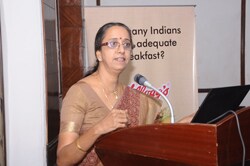
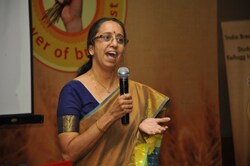
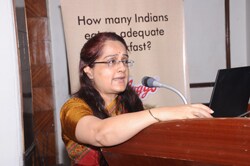
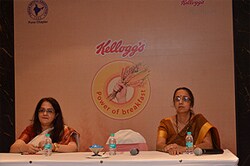
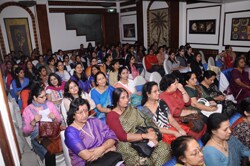
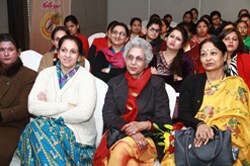
CNE on Seed to Spoon Story
9 CNEs successfully completed in partnership with various state IDA chapters. The CNE session comprised of 2 topics. The first one help to burst many myths about food processing and got participants to understand that although processing is often considered a negative attribute in nutrition, food processing is important to provide products that are suitable for consumption. The second session emphasized on ‘Role of Cereals in Management of Lifestyle Diseases’. The health benefits of regular cereal consumption were emphasised. The importance of including breakfast cereals in the diet for management of various lifestyle diseases was illustrated with the help of scientific evidence.
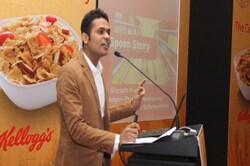
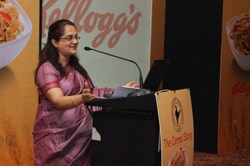
CNE on Protein and Fibre – Its Role in Satiety
8 CNEs in partnership with various state IDA chapters were planned and executed successfully. The CNE was divided into two sessions. The first one on the ‘Trends in Protein and Fibre Consumption’ highlighted the global trends. The second session on ‘Protein and Fibre: Its Role in Satiety’ emphasized the underlying biochemical mechanisms that are associated with the positive impact of intake of protein and fibre on satiety and energy balance. The sessions highlighted that inclusion of foods high in protein and fibre help feel full, prevent untimely hunger pangs, and thereby help in weight management. Role of healthy diet, regular exercise and an active lifestyle was emphasized.
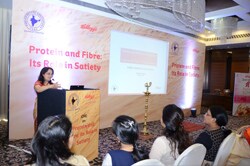
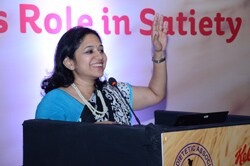
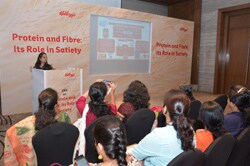
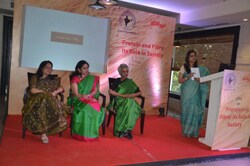
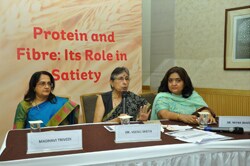
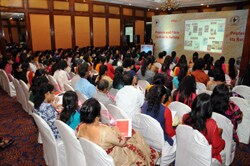
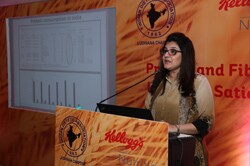
CNE on Power of Grains
7 CNEs in partnership with various state IDA chapters were planned and successfully executed. There were 2 sessions planned. The first one on the ‘Trends in Grain Consumption’ and the second one on ‘Health Benefits of Grains’. The first session highlighted the global trends related to consumption of grains. The second session provided scientific evidence on the health benefits of cereal grains. The role of cereal grains in preventing/ reducing risk of non-communicable diseases and all-cause mortality was presented along with scientific evidence and related physiological/ biochemical mechanisms. A quiz on grains and grain science helped engage the audience.
